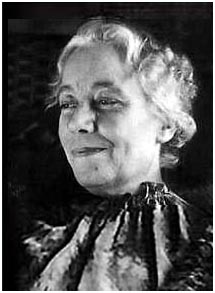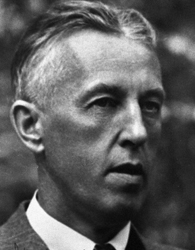 First edition | |
| Author | Karen Horney |
|---|---|
| Country | United States |
| Language | English |
| Publisher | W. W. Norton & Company, Inc. |
Publication date | 1950 |
| Media type | Print (hardback and paperback) |
| Pages | 391 |
Neurosis and Human Growth: The Struggle Toward Self-Realization is the magnum opus of German-American psychoanalyst Karen Horney. In it she outlines her theory of neurosis.

Psychoanalysis is a set of theories and therapeutic techniques related to the study of the unconscious mind, which together form a method of treatment for mental-health disorders. The discipline was established in the early 1890s by Austrian neurologist Sigmund Freud and stemmed partly from the clinical work of Josef Breuer and others. Psychoanalysis was later developed in different directions, mostly by students of Freud such as Alfred Adler and Carl Gustav Jung, and by neo-Freudians such as Erich Fromm, Karen Horney and Harry Stack Sullivan. Freud retained the term psychoanalysis for his own school of thought.

Karen Horney was a German psychoanalyst who practiced in the United States during her later career. Her theories questioned some traditional Freudian views. This was particularly true of her theories of sexuality and of the instinct orientation of psychoanalysis. She is credited with founding feminist psychology in response to Freud's theory of penis envy. She disagreed with Freud about inherent differences in the psychology of men and women, and she traced such differences to society and culture rather than biology. As such, she is often classified as neo-Freudian.
Neurosis is a class of functional mental disorders involving chronic distress but neither delusions nor hallucinations. The term is no longer used by the professional psychiatric community in the United States, having been eliminated from the Diagnostic and Statistical Manual of Mental Disorders in 1980 with the publication of DSM III. It is still used in the ICD-10 Chapter V F40–48.
Contents
In Horney's view, the key difference between neurosis and healthy growth is the difference between compulsive actions fueled by anxiety and spontaneous actions fueled by one's full range of emotions. If a person grows up able to maintain his or her spontaneity, that person grows up by a process which Horney calls self-realization. Horney describes self-realization as the development of a person's given potentialities, and compares it with the process of an acorn growing, given fertile soil, into a tree.

Anxiety is an emotion characterized by an unpleasant state of inner turmoil, often accompanied by nervous behaviour such as pacing back and forth, somatic complaints, and rumination. It is the subjectively unpleasant feelings of dread over anticipated events, such as the feeling of imminent death.
Self-actualization is a term that has been used in various psychology theories, often in different ways. The term was originally introduced by the organismic theorist Kurt Goldstein for the motive to realize one's full potential: "the tendency to actualize itself as fully as possible is the basic drive ... the drive of self-actualization." Carl Rogers similarly wrote of "the curative force in psychotherapy – man's tendency to actualize himself, to become his potentialities ... to express and activate all the capacities of the organism."
The principal subject of the book, however, is what happens when a person's spontaneity is crushed in early life. The person will slowly lose touch with that spontaneity or "real self" and develop, instead, a reactive self which is constructed to respond to dangers of various kinds. If a child's early environment is such that the child grows up seeing the world as basically hostile, compulsive actions will predominate and the child will grow up devoted to allaying anxiety. This development and its consequences for the adult personality are what Horney calls neurosis.
Horney devotes thirteen chapters to an analysis of the neurotic development in all its nuances and the various forms it can take as a person grows into adulthood, one chapter to the process of overcoming neurosis in therapy, and one chapter to how her theory compares and contrasts with classical psychoanalytic theory.






